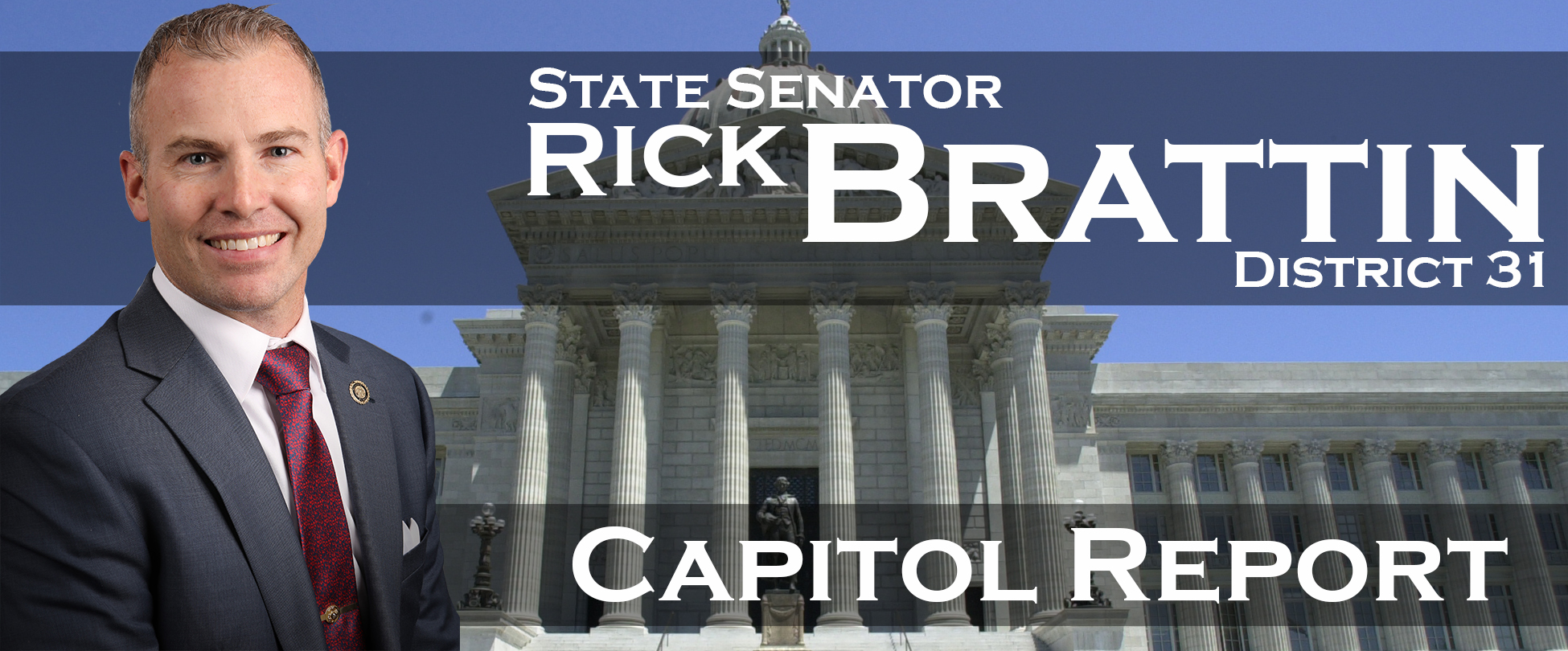Sen. Rick Brattin’s Capitol Report for the Week of March 7: Protecting Young Minds
Friday, March 11, 2022

The last few years have been trying times for everyone, particularly for children. They saw years of their education stolen from them. Some were cut off from their friends, family, and, in many cases, from the only support system they have. They see a lack of leadership that is harming their country, their future, and their lives. That’s a lot for our children to cope with. There’s another challenge, though, our children are facing that is every bit as serious. It’s a problem that robs them of their innocence, distorts their perception of healthy relationships and damages marriages and families. It’s the problem of pornography.
Children are increasingly growing up in a highly-sexualized culture where access to obscene material has never been easier and, at the same time, it’s more difficult for parents and adults to monitor. When you add to that the mismanagement of our economy and the pressures Americans are feeling to make ends meet, there are more families than ever where both parents are forced to work. This isn’t parents’ fault. They are doing their best. They are taking care of their family and providing. Those outside influences, though, can more easily crowd out the positive influences parents provide simply because there aren’t enough hours in the day.
To highlight just how pervasive and damaging pornography is on our society as a whole, consider the following. Every second, there are 28,258 users watching pornography on the internet, and every second, $3,075.64 is being spent on pornography on the internet. Approximately 40 million Americans regularly visit porn sites. According to a recent study, at least 27% of young adults first viewed pornography before puberty. That’s shocking enough, but even more so when we consider that young minds are still forming and are particularly vulnerable to this sort of content. They respond to things in ways adults don’t. Pornography is emotionally-charged and it has a dramatic effect on kids. Then there is the way pornography harms relationships, especially marriages and families. The distortions created by pornography are said to be a factor in at least 56% of divorces. Multiple studies have linked porn usage to a higher rate of sexual violence and abuse and to increased instances of violence against women.
As you can see from these numbers, this isn’t just a little problem. It’s a full-scale crisis and if we want stop this crisis from getting worse, we need to do what’s necessary to protect our kids. That’s exactly what I am doing with the Protect Young Minds Online Act. This is a first-of-its-kind legislation in the country that would create a stopgap between children searching the internet and obscene websites by requiring a password or sign-in before accessing any such sites. Instead of after-market software that doesn’t work or is never installed, this method stops all porn before it can get even get to our kids. We’ve all heard stories of children accidentally stumbling onto disgusting and harmful content on the internet. With my bill, this wouldn’t happen. There would be a filter that stops that page from loading and requires a password to continue.
One argument that keeps coming up on the bill is parents should do this. I agree parents should be vigilant of what their children are seeing and doing online, but the reality is parents could do everything right and this content still will find a way through. There is no practical way to fully protect children online without putting in protections like that in the Protect Young Minds Online Act.
Unfortunately, it’s not just the internet where kids are bombarded with pornography. It’s happening in schools, too. As parents are becoming more aware of curriculum and learning materials in schools, they are discovering some of it is not age-appropriate and some of it is just flat-out pornography. For example, right here in Missouri, a school district purchased a book called “Fun Home: A Family Tragicomic” for their English I Book Club. This book contained comic book-style illustrations of sexual acts and naked depictions of the human body that have no business in a classroom or in a school library.
That’s just one example and there are dozens of other examples of this filth in schools all over the country. We can’t duck our heads in the sand and pretend it isn’t happening or that schools will handle it – because some of them aren’t handling it. In fact, they are fighting to keep it in schools. That’s why I also filed Senate Bill 1224, which would criminalize providing pornographic materials to children in schools. The last place our children should be exposed to pornography is in school. Schools should be teaching our kids to read and write, and the other core subjects, not exposing them to content they aren’t ready for and that has no educational value. My bill would make it clear that pornography has no place in the halls of our schools.
I’m sure I’ll take some heat from those out there that feel threatened by the bills I filed. That’s okay. Our children are a precious gift from God, and it’s our job to raise them to respect themselves and the opposite sex the way God intended. Now, more than ever, our children need us to teach them right from wrong and to protect them from the degradation of our society. I will never back down, nor will I ever stop doing everything in my power to protect our children.
If you have any ideas, questions and concern, please feel free to contact me at the State Capitol: (573) 751-2108, rick.brattin@senate.mo.gov or by writing to Sen. Rick Brattin, Missouri State Capitol, Room 331, Jefferson City, MO 65101.
God bless and thank you for the opportunity to work for you in the Missouri Senate.